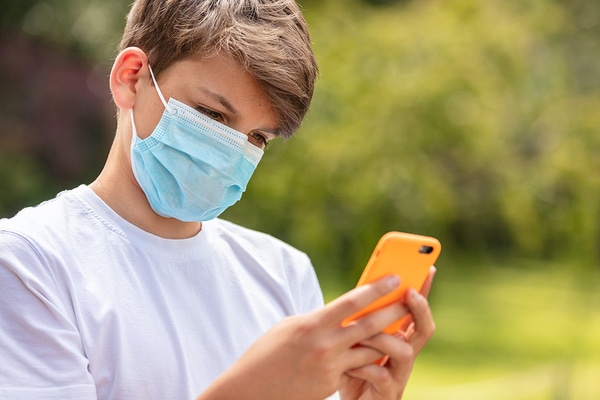Language is one of the great barriers to change, and Ablo has an admirable mission in that it tries to connect people across languages. But is that safe for kids? Here’s what parents need to know about Ablo.
What Is Ablo?
Ablo is a social networking and instant messaging app for iOS and Android, and also available via the web. It first debuted in January 2019, with its first “stable” release, meaning there were no major bugs or glitches, in December 2019. It’s owned by dating app company Match, although as of this writing it has no dating functions. The most interesting feature of Ablo is that it allows people who speak different languages to have live one-to-one conversations via text and video while automatically translating between them.
The translations appear under the video as subtitles, while texts appear simply as translated. It’s currently available in 37 different languages. As a technical demonstration, it’s quite impressive, and you’ll likely hear a lot more about it as the technology improves. As a social network and messaging app, however, it leaves much to be desired.
Is Ablo Safe For Kids?
The app makes it clear in its terms and conditions that kids aren’t welcome on the platform: Ablo is only for those 18 and older. However, this isn’t enforced beyond an honor system where you enter a birth date into a form while registering, and it’s not clear that this could be validated in the first place. As such, it’s probably better to simply block it via parental control software or operating system level controls.
So what about teenagers who are officially adults, but still living in your house and using your phone plan? While so far there have been no reported incidents on Ablo, there’s also very little in the way of safety features. The company makes it clear that sexual harassment and threats won’t be tolerated, and it will kick users off for engaging in that behavior. However, it relies on community reporting to enforce this, which is hardly the most effective tool.

There’s also the question of monitoring. The long-term goal, here, is to teach translation systems how to better communicate, which means messages will be monitored and studied. Teens should understand this.
Finally, left unanswered is a fundamental question of culture gaps. If you’ve ever traveled, you know that even places that seem very similar to your country can have some enormous social differences. Even in situations where both parties are well-meaning, offense can be given and “misbehavior” can be perceived. Exposure to other cultures is a positive thing, but it’s not always a simple or easy experience.
Should My Teen Use Ablo?
Anybody under eighteen shouldn’t be allowed on Ablo. For those on the cusp of adulthood, take these steps:
- Discuss cultural differences with your kids and how to bridge them.
- Ask them how and why they want to use Ablo, and discuss how to be safe.
- Make sure they understand that harassment, bullying, and online grooming can happen to adults, as well, and that they should be aware of it.
- Similarly, they should understand that as adults, they’re expected to comply with a higher standard. Go over Ablo’s terms of service with them and consider a family contract they need to abide by as long as you share phone plans.
Managing the transition of childhood to adulthood on screens can be tough, and parental control software can help. To learn more, contact us!

Join the conversation